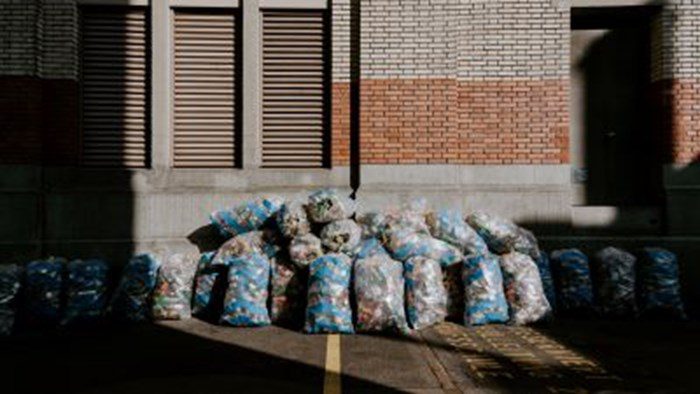A consultation setting out plans for a mandatory digital waste tracking service in the UK was launched on 21 January 2022.
- Consultation sets out UK-wide approach to introduce mandatory Digital Waste Tracking (DWT) for the movement of waste.
- Plans will help track compliance and tackle illegal waste exports and fly-tipping – an issue recently highlighted by the programme BBC Disclosure
- Powers in Environment Act mean digital waste tracking can support the effective regulation of waste and track waste and resource flows in a circular economy
The Scottish Environment Protection Agency and Scottish Government have been working with UK partners to develop a four-nation approach to digital tracking of waste movements. The Environment Act 2021 provides powers for the Scottish Government to develop regulations to introduce a digital waste tracking service in Scotland, which will be implemented by the Scottish Environment Protection Agency (SEPA).
The consultation is seeking views on the practical aspects of implementing digital waste tracking across the UK including:
- What waste activities and information will need to be recorded
- What current waste reporting will be replaced by the new service
- How users will be able to enter information onto the service
- Who will be required to enter information and when
- Alternative provisions for digitally excluded waste holders
- Data access controls
- Cost recovery
- Compliance and enforcement
- How we should go live with the service
SEPA urges Scottish businesses and stakeholders to take part in the consultation and provide their views. The consultation can be found on SEPA’s consultation hub.
A mandatory UK digital waste tracking service will transform the way we track waste and resource flows, tackle waste crime and prioritise regulatory activities. It will help SEPA identify actions to support a shift to the circular economy, facilitate strategic decision making and support users to make informed choices about how their waste is managed.
This means those handling waste will record information from the point waste is produced to the stage it is disposed of, recycled and reused. This will enable regulators to better tackle waste crime, including fly-tipping, illegal waste sites, and illegal waste exports. It will also help businesses and householders comply with their duty of care with regards to waste and help them make more informed choices about how their waste is managed.
As highlighted in BBC Disclosure’s recent broadcast, Dirty Business, criminal activities including fly-tipping, illegal dumping, and the illegal export of waste abroad can blight communities, harm the environment, and pose a risk to human health. Research estimates £53 million is taken from the public purse every year in Scotland removing illegal waste and serious and organised crime is estimated to cost the UK economy at least £600 million a year.
Scotland generates 11.45 million tonnes of waste a year and DWT will help unlock opportunities to do better things with our waste and resources.
Scottish Government Circular Economy Minister, Lorna Slater, said:
“A digital waste tracking system will help to tackle the waste crime that causes such harm to our environment, such as flytipping and illegal waste exports. Having access to comprehensive and up to date information on where waste is generated and moved within Scotland is vital if we are to crack down on waste crime.
“By making it easier to identify opportunities to reduce the waste produced and reuse more of the materials we consume, these measures will help create a circular economy, where materials are kept in use for as long as possible and nothing is wasted.
“Developing and implementing a digital waste tracking system will provide a step change in the quality and timeliness of waste data. This will support decision-making and help us to cut emissions and meet our waste reduction and recycling targets.”
DWT will help to deliver SEPA’s Regulatory Strategy by monitoring compliance with the Duty of Care, enabling timely tracking of hazardous waste, facilitate better data analysis to identify waste crime and provide data to support the development and monitoring of sector plans.
It will also enable the identification and tracking of materials and resources to facilitate their more efficient use in the circular economy, supporting the objectives of SEPA’s Waste to Resources Framework and Scottish Government’s circular economy strategy.
Ian Buchanan, Chief Officer of Compliance and Beyond, for SEPA said:
“Digital Waste Tracking will improve the way we regulate waste and help waste producers and the waste management industry demonstrate compliance and make important decisions about waste and resources. DWT will also strengthen our ability to track compliance, prioritise regulatory activities and help prevent waste crime, including illegal export of waste.
“We are clear in what we expect of businesses of all sizes, from SMEs to specialist companies. Ignorance of the law is no excuse. SEPA will continue to invest significant regulatory effort in monitoring waste movement and waste exports to ensure compliance and will use a variety of approaches to successfully detect, disrupt and deter illegal activity in Scotland.
“Waste crime has a real impact on local communities and legitimate business. It can cause serious pollution, puts communities at risk and undermines the efforts of legitimate operators.”
A spokesperson for the Resource Management Association Scotland said:
“We welcome the announcement of the Digital Waste Tracking consultation. This presents an excellent opportunity to shape the future of waste data and tracking, to help support the Resource and Waste Management Sector in Scotland and the journey to net zero and we will be encouraging our members to respond.”
You can find the consultation which closes on 15 April 2022 on SEPA’s consultation hub.





